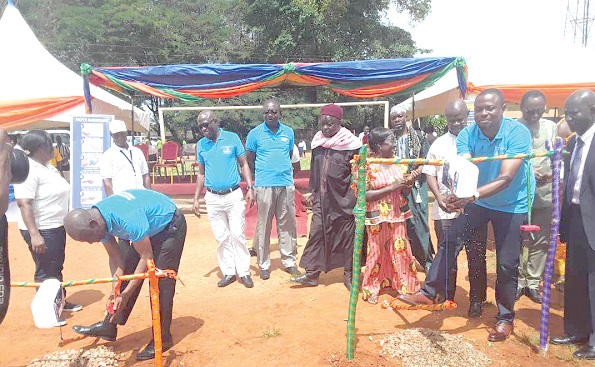
Ghana commemorates Handwashing Day
This year’s Global Handwashing Day was commemorated in Goaso in the Ahafo Region, with a call on Ghanaians to take issues of sanitation and hygiene seriously for good health.
The day, established in 2008 is marked every October 15, to increase awareness and understanding of the importance of handwashing with soap to prevent diseases and save lives.
The event, which was on the theme: “Clean hands for all — Leave no one behind”, was used to educate people on the need to have handwashing facilities and also wash their hands regularly.
The event was jointly organised by the Community Water and Sanitation Agency (CWSA), the Environmental Health and Sanitation Directorate of the Ministry of Sanitation, UNICEF, Rural Water and Development Programme, Ghana, the School Health Education Programme, the Coalition of NGOs in Water and Sanitation (CONIWAS), the Ghana Water and Sanitation Journalists Network (GWJN) and the Ghana Health Service.
As part of the commemoration, a durbar was held, while hundreds of schoolchildren paraded the streets of the regional capital with placards sensitising the people to the importance of washing their hands regularly.
Diseases
The Ahafo Regional Minister, Mr Evans Opoku-Bobie, said hands were principal carriers of disease-causing pathogens which could be carried from one person to another.
Proper handwashing with soap, according to him, helped to remove germs from the hands and thereby prevented the transmission of respiratory infections and diarrhoea diseases, including cholera.
"It is now time for all Ghanaians to put sanitation and hygiene practice into proper perspective because while sanitation is dignifying, good hygiene behaviour also promotes health," he added.
Statistics
Mr Opoku-Bobie said a multiple indicator cluster survey conducted in 2017 revealed that only 48 per cent of Ghanaians had access to handwashing facilities.
He said it was as a result of this that stakeholders were making efforts to educate people and also provide facilities to encourage the practice of handwashing in schools, homes and at workplaces.
The minister said inequalities in handwashing facilities could put individuals at higher risk of diseases, which could impact on their health, education and economic outcomes.
He, therefore, proposed that district assemblies, school authorities and traditional councils should focus on the establishment of accessible and appropriate places for the washing of hands in households, communities, schools, workplaces and health facilities.
In a speech read on his behalf, the Chief Executive Officer of the CWSA, Mr Warlanyo Kwadjo Siabi, said even though there was high awareness of handwashing, the practice was not observed by majority of Ghanaians.
"The challenge has been on how to transform handwashing with soap from an abstract good idea into an automatic behaviour performed in homes, schools and communities," he said.
Prize
The Mim AME Zion Basic School, which won a national competition in the construction of tippy tap, a simple and affordable device used for handwashing, was presented with its prize, comprising books and a set of jerseys, among other items.
There was also a demonstration on proper handwashing.
